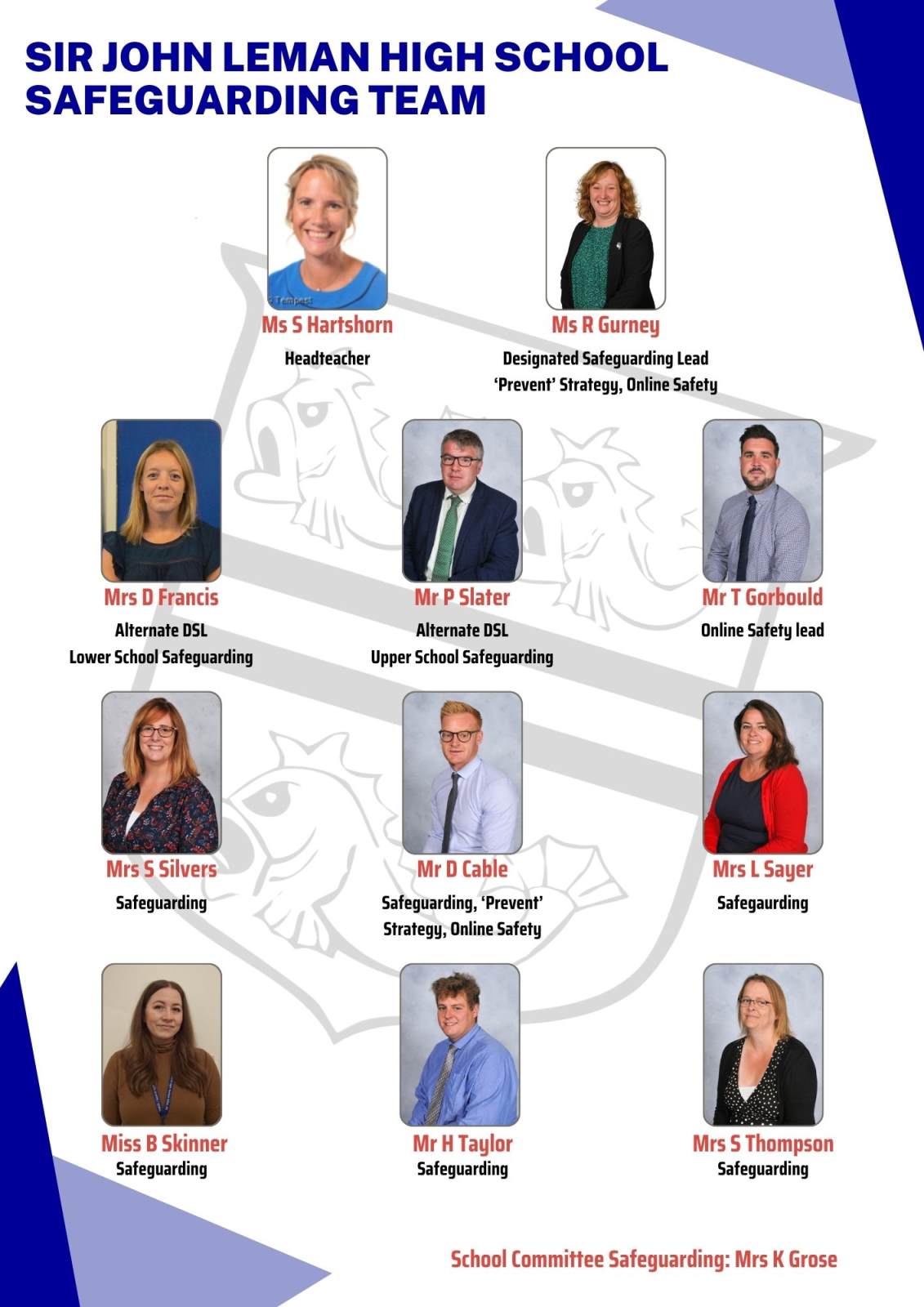Safeguarding
Our first priority is the safety of all in our community. Working together with parents and carers, young people (and other agencies as necessary) is imperative to ensure that our students are safe and thriving.
Safeguarding in School:

Our staff are all available to support students with safeguarding concerns, and particularly the colleagues shown above whose roles are identified.
What we do to safeguard students:
- All students have a morning check in with their form tutor
- Our Year Managers are non-teaching and trained as Designated Safeguarding Leads.
- Assemblies and tutor activities about aspects of safeguarding including online safety and the importance of sharing concerns with a trusted adult.
- Interventions which support identified needs such as social skills or emotional regulation
- Mental Health support from external agencies, mental health champions (students) and Mental Health Leads (adults)
- Communication with parents/ carers and with external agencies as necessary
‘Early Help’
It is always preferable to address an issue sooner rather than later when this may be more impactful on the young person and their family. Please make contact if you are concerned about your child or any of our students. We have a range of early help we can support with- this list is an example, not exhaustive, as the offer changes regularly.
- Non-teaching Learning Support Managers – 1:1 check ins, student and parent meetings,
- School nurse - drop in service and referrals
- Suffolk Young Carers
- Assemblies, form time activities, raising awareness
- Home visits
- Transition support
- EWO
- Regular communication with home
- Parenting support/advice through signposting
- Break and Lunch time – Safe and nurturing areas available for those who need extra support
- After School homework club
- Interventions– Social Skills, Friendship Building, Social, Emotional and Communication Skills
- Support through Specialist Education Service for identified students
- ELSA interventions (Emotional Literacy)
A safe environment:
- Policies which cover safeguarding and child protection
- A comprehensive and clear behaviour policy
- Supervision by staff around the school site
- Close monitoring of student attendance and first day contact
- ‘Safer recruitment’ of all staff whether employed or voluntary working in school
- Regular staff safeguarding updates and training
- Filtering and Monitoring of school internet use
- Risk assessments for students with specific difficulties and all trips and visits
- First aiders always on school site and trips
- Staff ID badges and visitor and Sixth Form lanyards
Educating Students:
A programme of assemblies, tutor time activities, and PSHEE (Forever programme) activities are delivered at an age appropriate level across the curriculum. This is in accordance with statutory guidance and includes Relationships and Sex Education. We recognise that some students may be more ‘ready’ for key information at different times, so information is revisited in a spiral curriculum. Please see PSHEE information in the curriculum section of this website for further information.
Other aspects of safeguarding education are delivered in the appropriate curriculum area: for example, Online Safety education is also delivered in Computing lessons at Key Stage 3.
Parents Online Safety Presentation







